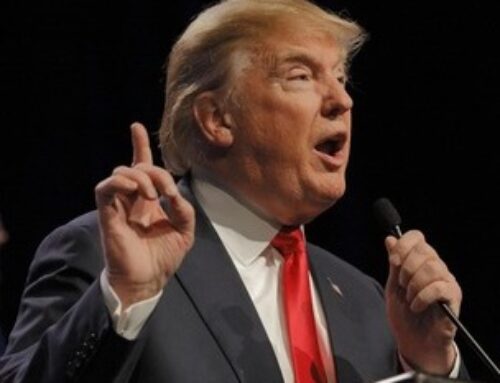
Donald Trump has such a problem. It is not that Hillary’s positions on key issues are stronger than his. In fact, they are for the most part weaker, largely because they are tied to Barack Obama’s failed policies. No, Trump’s problem is of his own making. He lacks intellectual discipline, easily losing his focus and chasing every passing distraction and thereby neglecting what he needs to do to win the election.
Analyst Dagen McDowell compares Trump to a football quarterback who becomes so absorbed in arguing with fans in the stands that he keeps dropping the football. Patrick Buchanan likens him to a heavyweight boxer approaching the ring, hearing an insult from someone in the crowd, and rushing over to fight that person instead of his opponent.
To make matters worse, rather than choosing his remarks thoughtfully, Trump tends to speak in stream-of-consciousness style, saying whatever happens to pop into his head, a habit that increases the likelihood of saying something inappropriate. As if that were not enough, he finds it difficult to acknowledge his mistakes and almost never offers a meaningful apology, even for the most egregious ones. (My guess is that he long ago embraced the popular but loony self-esteem dictum that admitting errors invites emotional disorders.)
Trump’s lamentable statements have included overstating the criminality of Mexican immigrants, declaring that John McCain was not a war hero, insulting the Khans (Gold Star parents), calling Megyn Kelly a “bimbo,” denigrating Ted Cruz’s wife and father, and making disparaging remarks about an assortment of accomplished individuals.
Each of these mistakes, along with many others, dominated the news for days and cost Trump innumerable opportunities to persuade voters that he is the better choice for President.
Had Trump controlled his assaultive digressions, he could have explained how he plans to balance the budget, reduce the national debt, reform the tax code, bring jobs back to this country, enforce immigration laws, strengthen the armed forces, replace Obamacare, vanquish Islamic terrorism, and appoint Supreme Court Justices who support the Constitution. That, after all, is what people need to know before voting for him.
If Trump fails to win the White House, it will be, ironically, for exactly the opposite reason that Mitt Romney failed. Whereas Romney failed by being too weak and polite in engaging his opponent, Trump will have failed for being too aggressive and impolite in engaging everyone except his opponent.
Trump’s inability to practice self-control and demonstrate a modicum of humility is depressing for all those who believe he would be a better president than Hillary Clinton. Even so, they have reason for hope. From all indications there is a good chance that, even if Trump is unable to solve his problem by himself, an unexpected solution—a Deus Ex Machina, as it were—will appear and do so for him.
Former NSA official William Binney has expressed certainty that the agency’s cyber surveillance program, which he created, captured and retained Hillary Clinton’s emails, including those she allegedly attempted to destroy. He further has speculated that someone inside the U.S. Intelligence community was responsible for hacking the Democratic National Committee’s website.
Moreover, Wikileaks editor Julian Assange has promised to publish this and other material damaging to Hillary Clinton before the election. If this proves to be the case, Trump could win the election despite his faults as a campaigner.
Copyright © 2016 by Vincent Ryan Ruggiero. All rights reserved.

